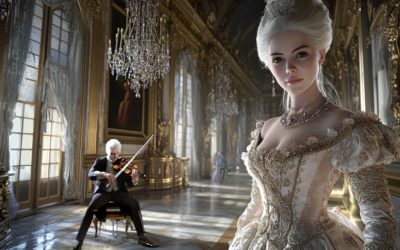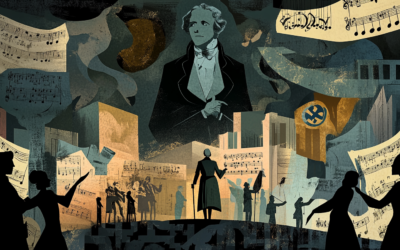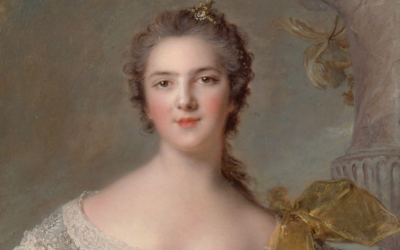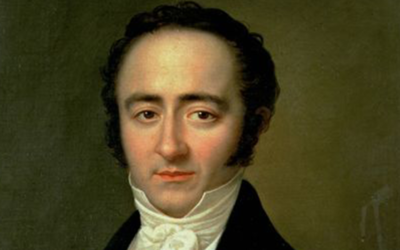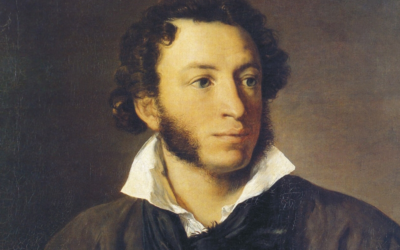A Nationalist Dream
The Hidden Origins of the Salzburg Festival
The Salzburg Festival, far from being a mere celebration of Mozart’s genius, was born out of nationalist ambitions during a turbulent period in Austro-German history. Conceived by figures like Max Reinhardt, Heinrich Damisch, and Friedrich Gehmacher, the festival was deeply rooted in ultranationalistic ideals, transforming Mozart’s legacy into a tool for cultural dominance. The truth behind its founding has long been obscured, but the primary sources tell a different, darker story.
Mozart: The Fall of the Gods
This book compiles the results of our studies on 18th-century music and Mozart, who has been revered for over two centuries as a deity. We dismantle the baseless cult of Mozart and strip away the clichés that falsely present him as a natural genius, revealing the contradictions in conventional biographies. In this work, divided into two parts, we identify and critically analyze several contradictory points in the vast Mozart bibliography. Each of the nearly 2,000 citations is meticulously sourced, allowing readers to verify the findings. This critical biography of Mozart emerges from these premises, addressing the numerous doubts raised by researchers.
"Joy was not the unifying ideal we might expect, but a weapon to impose Austria’s cultural dominance on the world."
Mozart: The Fall of the Gods
In their thirst for power and cultural dominance, the Nazis claimed the glory of Germany’s past, wrapping themselves in the artistic legacies of Bach, Beethoven, Händel, Haydn, Mozart, Schubert, and—of course—Wagner. Hitler, entranced by Wagner’s music, would descend into a frenzy that fueled his darkest ambitions. Yet the story of how Mozart’s legacy was drawn into this nationalist frenzy begins long before the rise of the Third Reich.
During World War I, actor and director Max Reinhardt (1873-1943) envisioned a Mozartian theatre that would represent “the sacred culture and Austro-German nationalism.” Reinhardt sought to build a festival that could offer the public a celebration of Mozart, one that reflected both a secular, lighthearted, and popular spirit on one side, and sacred, mystical performances on the other.
However, in the early 20th century, Mozart’s music—and Austro-German musical heritage in general—lacked the international renown that it would later achieve. Reinhardt, echoing Schiller’s “Ode to Joy” from Beethoven’s Ninth Symphony, rallied his compatriots to “conquer the world with joy.” But let’s not be fooled by such lofty rhetoric: Reinhardt’s call to “brotherhood” came with a disturbing twist, one that glorified Austria’s domination of the world—hardly the image of universal freedom we often associate with Beethoven’s masterpiece.
It was in this charged atmosphere, with the support of imperial institutions, that the idea of an international classical music festival dedicated to Mozart was born. This festival, which would become the Salzburg Festival, was steeped in nationalism from its very inception.
The true spirit behind the Salzburg Festival was to preserve a cultural tradition that, for over a century, had served both as a nostalgic reminder of Austria’s imperial past and as a nationalist tool for its future. The festival tapped into the patriotism and cultural pride of the Austro-Hungarian Empire—a sentiment that, though carefully concealed in official narratives, carried with it ultranationalistic and discriminatory ideas.
It is striking that modern scholars have often glossed over these troubling aspects of the festival’s founding. Austrian musicologist Gernot Gruber, in his 1985 book Mozart and Posterity (Mozart und die Nachwelt), fails to mention the racist and xenophobic ideologies of Heinrich Damisch (1872-1961), one of the festival’s key founders. Damisch, alongside Friedrich Gehmacher (1866-1942), established the Salzburger Festspielhausgemeinde (Salzburg Festival Society) in 1917, during a period of profound political and cultural turmoil.
What Gruber also neglects to mention is that Gehmacher, Damisch’s partner, was at the head of a powerful nationalist faction in Salzburg. He sought to exploit the influence of the Jewish Max Reinhardt to recreate a distinctly Austrian festival in Mozart’s city, modeled after Wagner’s Bayreuth Festival. These were the self-appointed “ambassadors of the modern Mozartian tradition,” determined to build a new festival hall in Salzburg to echo Wagner’s Festspielhaus.
As the festival grew, so too did its mythos—a myth that obscured its deeply nationalist, and at times exclusionary, foundations. Far from being a celebration of Mozart’s universal genius, the Salzburg Festival, in its early years, was a symbol of a cultural legacy hijacked by nationalist forces. In Reinhardt’s vision, “joy” was not the unifying ideal we might expect, but a weapon to impose Austria’s cultural dominance on the world.
Today, the story of how the festival began is conveniently sanitized, reduced to anecdotes about artistic excellence and cultural prestige. But the reality is that its origins are steeped in a darker history of appropriation and manipulation, one that used the legacy of Mozart to bolster a deeply nationalist agenda. And it is a story that must be told, for the sake of historical truth and intellectual honesty.
“Ultimately, we don’t believe in hiding the truth, and so we let the primary sources speak.”
You May Also Like
The Kolb Concerto: A Mozartian Mirage?
The Kolb Concerto’s dubious origin and poor musical quality expose yet another myth in the Mozartian canon. If this is the work of a genius, then perhaps we’ve been fooled for centuries.
The Adélaïde Deception: Mozart’s “Lost” Violin Concerto and the Art of Musical Forgery
In the early 20th century, the “discovery” of Mozart’s sixth violin concerto in Paris created a sensation. Dubbed the Adélaïde Concerto and supposedly written for Madame Adélaïde of France, it was hailed as a testament to Mozart’s genius. However, as the story unfolds, it becomes clear that this masterpiece was not the work of the child prodigy but rather a carefully orchestrated hoax by Marius Casadesus. Despite its unmasking as a forgery, the concerto continues to captivate audiences, raising questions about authenticity and the music industry’s willingness to deceive for profit.
Mozart and the Nationalist Illusion: The 1931 Festival and Its Legacy
The Salzburg Festival, far from being a mere celebration of Mozart’s genius, was born out of nationalist ambitions during a turbulent period in Austro-German history. Conceived by figures like Max Reinhardt, Heinrich Damisch, and Friedrich Gehmacher, the festival was deeply rooted in ultranationalistic ideals, transforming Mozart’s legacy into a tool for cultural dominance. The truth behind its founding has long been obscured, but the primary sources tell a different, darker story.
K.6 and K.7 Sonatas: A Fabricated Genius?
The earliest sonatas of Wolfgang Amadeus Mozart, K.6 and K.7, are traditionally seen as proof of his precocious genius. But as we explore the murky origins of these works, we find that they may be more a product of Leopold Mozart’s ambition than Wolfgang’s musical talent. The truth, as always, lies somewhere between the notes.
Georg Nissen and the Missing Notebooks – Part II
This second part delves deeper into Georg Nissen’s scheme to expose the truth about Mozart’s death, and the roles of Constanze Mozart and her sons in keeping it buried. As new details emerge, the mystery surrounding the famous composer’s final days grows even darker, with powerful forces potentially at play.
Mozart and Salieri
Pushkin does not see Salieri as a mere mediocre. In fact, Salieri embodies the struggle of the artist, much like Michelangelo, who reaches greatness through relentless effort. Pushkin himself identifies with both Mozart and Salieri, but he emphasises that true art demands work, discipline, and sacrifice. In poisoning the Mozartian element within himself, Salieri performs a service to art, freeing it from the frivolity of effortless genius. ‘Can genius and malice coexist?’ Pushkin’s answer is complex, but in the end, Salieri’s act seems to affirm that true creation lies in the hands of those who strive.



